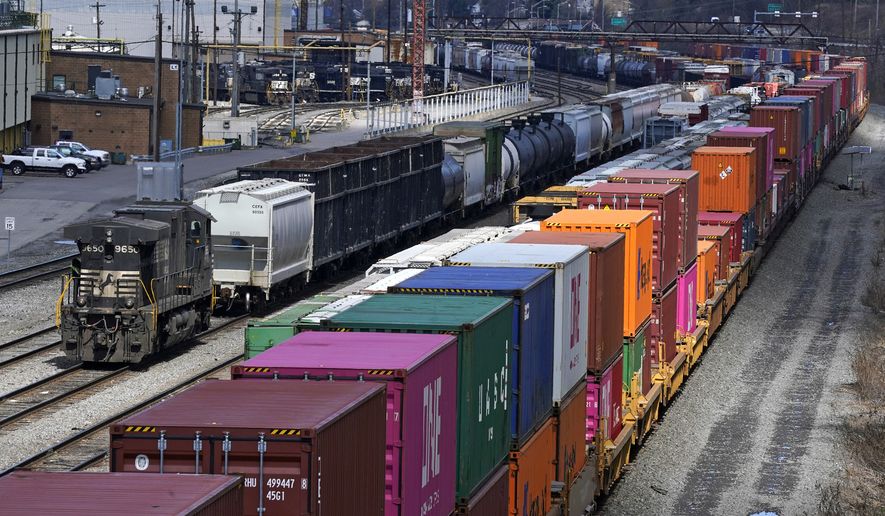The Senate reached an agreement Thursday to swiftly approve House-passed legislation to block an impending strike by railroad workers and head off a chaotic economic shutdown.
The bill would force unions and rail companies to abide by a labor deal brokered by the Biden administration, an agreement that fell apart in recent weeks because it included only one day of paid sick leave.
Senate Majority Leader Charles E. Schumer announced the deal on Thursday between the chambers’ Democrats and Republicans, smoothing over objections from small factions of senators in both parties.
“I am glad that the two sides have come together so that we can avoid this shutdown, which would be extremely damaging to the country,” the New York Democrat said.
The Senate voted on two amendments to the legislation, both of which failed.
The first, offered by GOP Sen. Dan Sullivan of Alaska, would have provided a 60-day cooling-off period for railroad companies and unions to continue negotiations, which was opposed by the unions.
The second was for seven paid sick leave days instead of one. That measure was passed in the House but was detached from the overall legislation to impose the labor agreement so as to not derail its chances in the Senate.
The two amendments and final passage require 60 votes to pass the 50-50 split Senate.
The overall legislation to impose the labor agreement is expected to pass with bipartisan support and then go to the desk of President Biden, who has drawn sharp rebuke from the labor unions for pushing Congress to intervene.
Mr. Biden boasted of his involvement in the negotiations and vowed to continue fighting for more paid sick leave, but he said averting a strike was the immediate priority.
“I think we are going to get [sick leave] done, but not within this agreement,” he said at a joint press conference with French President Emmanuel Macron. “What was negotiated was so much better than anything they ever had, and they all signed on to it. There were only four unions out of the 13 or 14 that disagreed.”
The five-year deal brokered by the Biden administration includes a 24% pay raise and $5,000 in bonuses. Because the pay raises are retroactive to July 2020, the average rail worker will receive back pay of about $11,000.
The agreement represents the largest in more than 40 years for railroad workers, meaning that the average annual salary would top $110,000 by the end of the five-year deal in 2025.
However, the lack of additional sick leave for railroad workers remained a major sticking point and fueled the strike threat. The original Biden-backed deal gave railroad workers one paid sick day and allowed them to take unpaid days off for doctor appointments without penalty under railroad attendance rules.
The effort to add additional days of paid leave created unlikely bedfellows, such as socialist Sens. Bernie Sanders of Vermont and Republican Ted Cruz of Texas, who said it was a fair demand by workers.
“This is an industry that has made huge profits. They doubled their profits during the pandemic. They’ve done $125 billion in buybacks. They’ve cut the workforce by 30%, and the way they generate those profits is with precision scheduling that requires railroad workers to be on call, essentially 365 days a year,” Sen. Elizabeth Warren, Massachusets Democrat, told The Washington Times. “That’s not right, it’s not safe for the workers and, frankly, it’s not safe for the rest of us.”
• Jeff Mordock contributed to this report.
• Ramsey Touchberry can be reached at rtouchberry@washingtontimes.com.




Please read our comment policy before commenting.